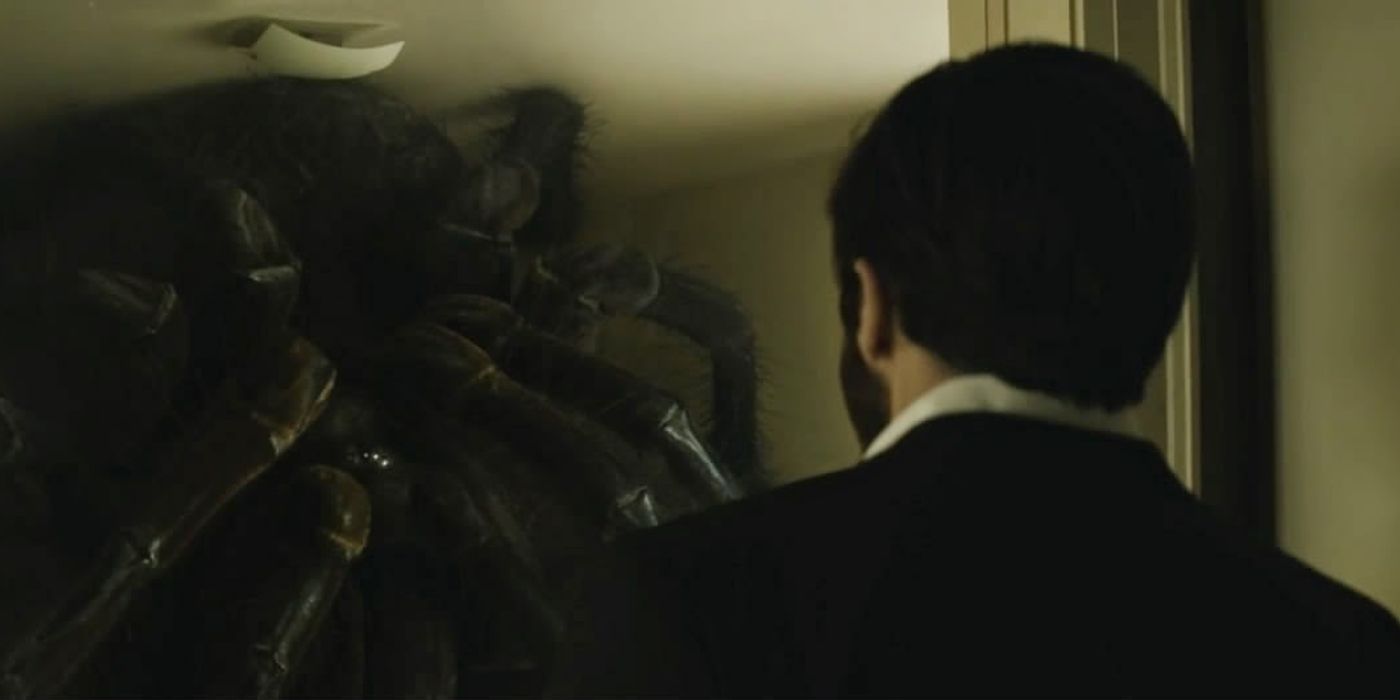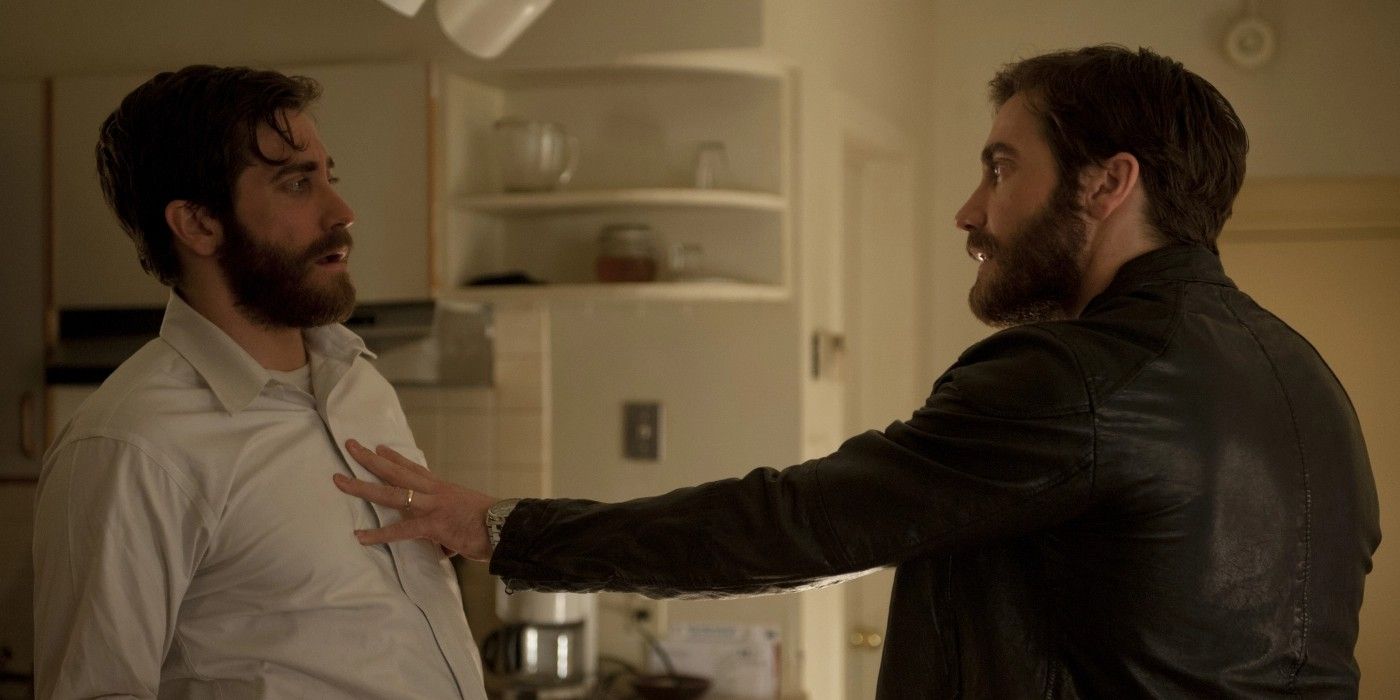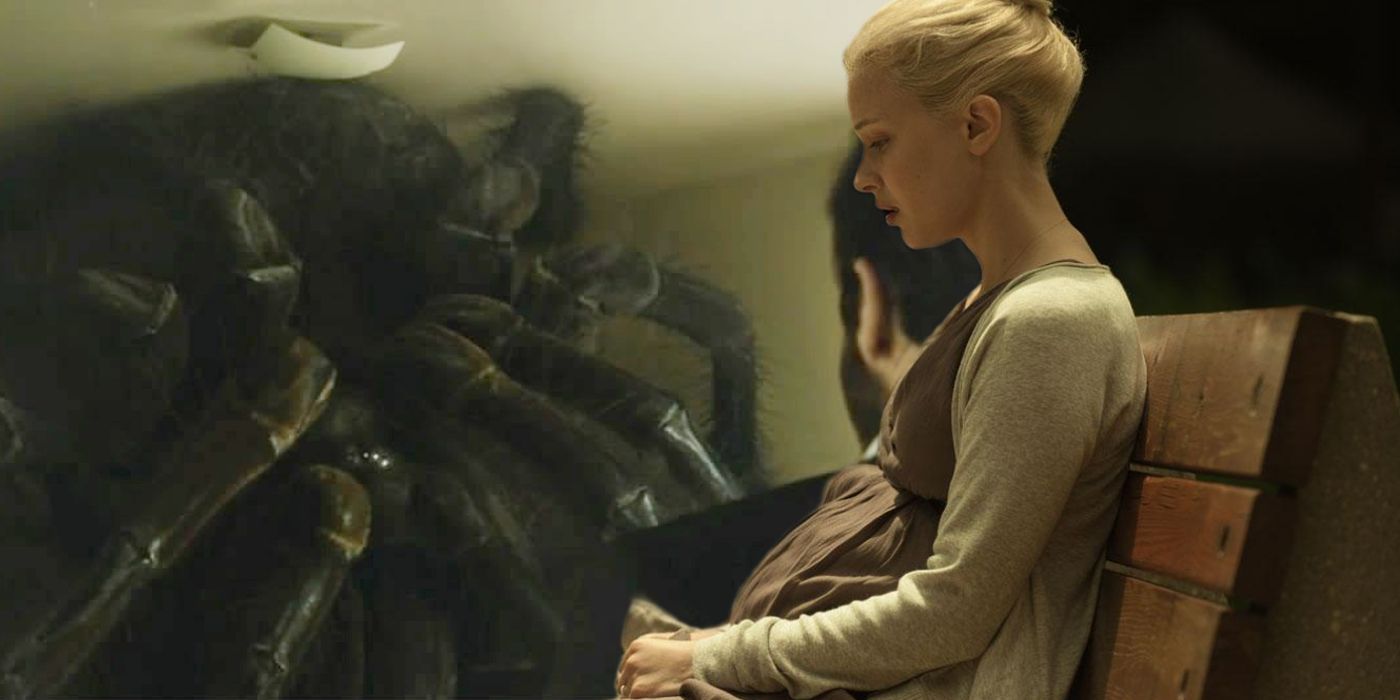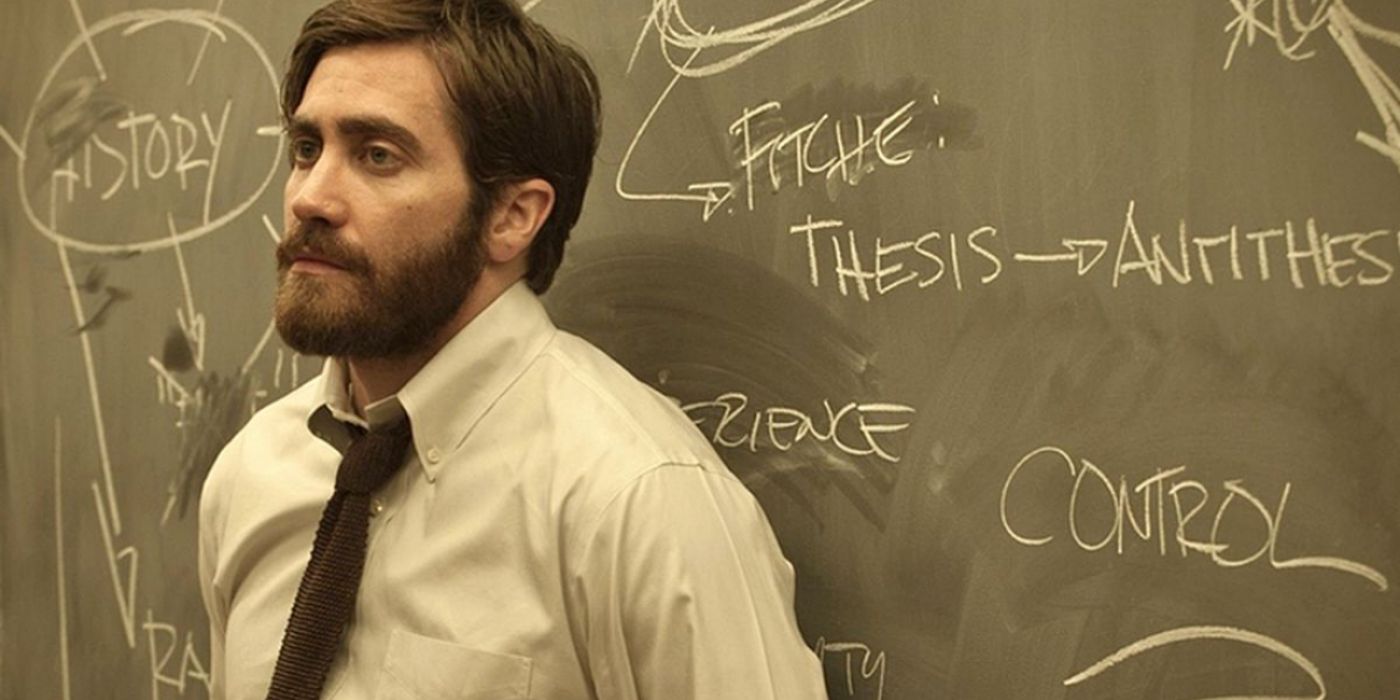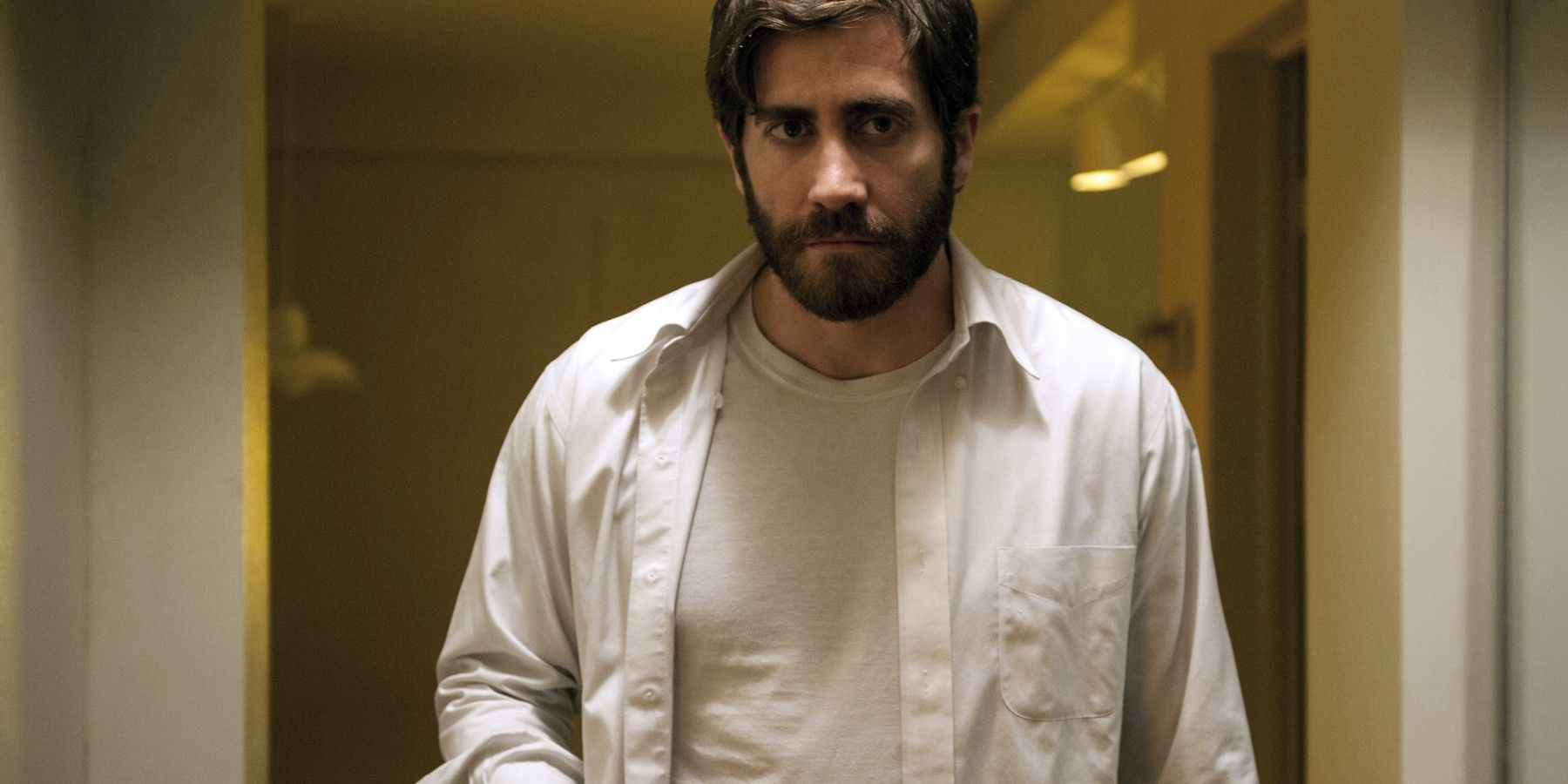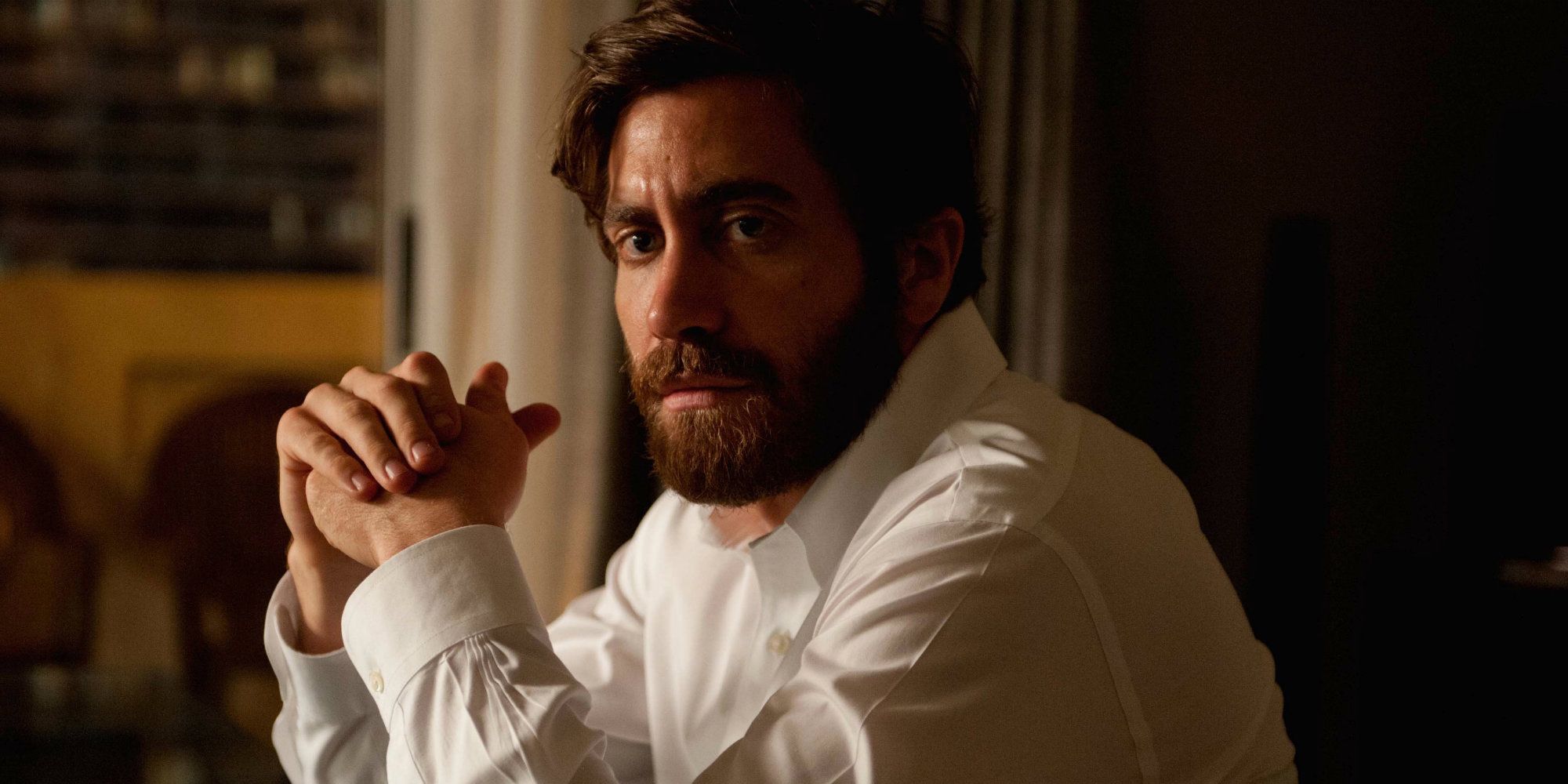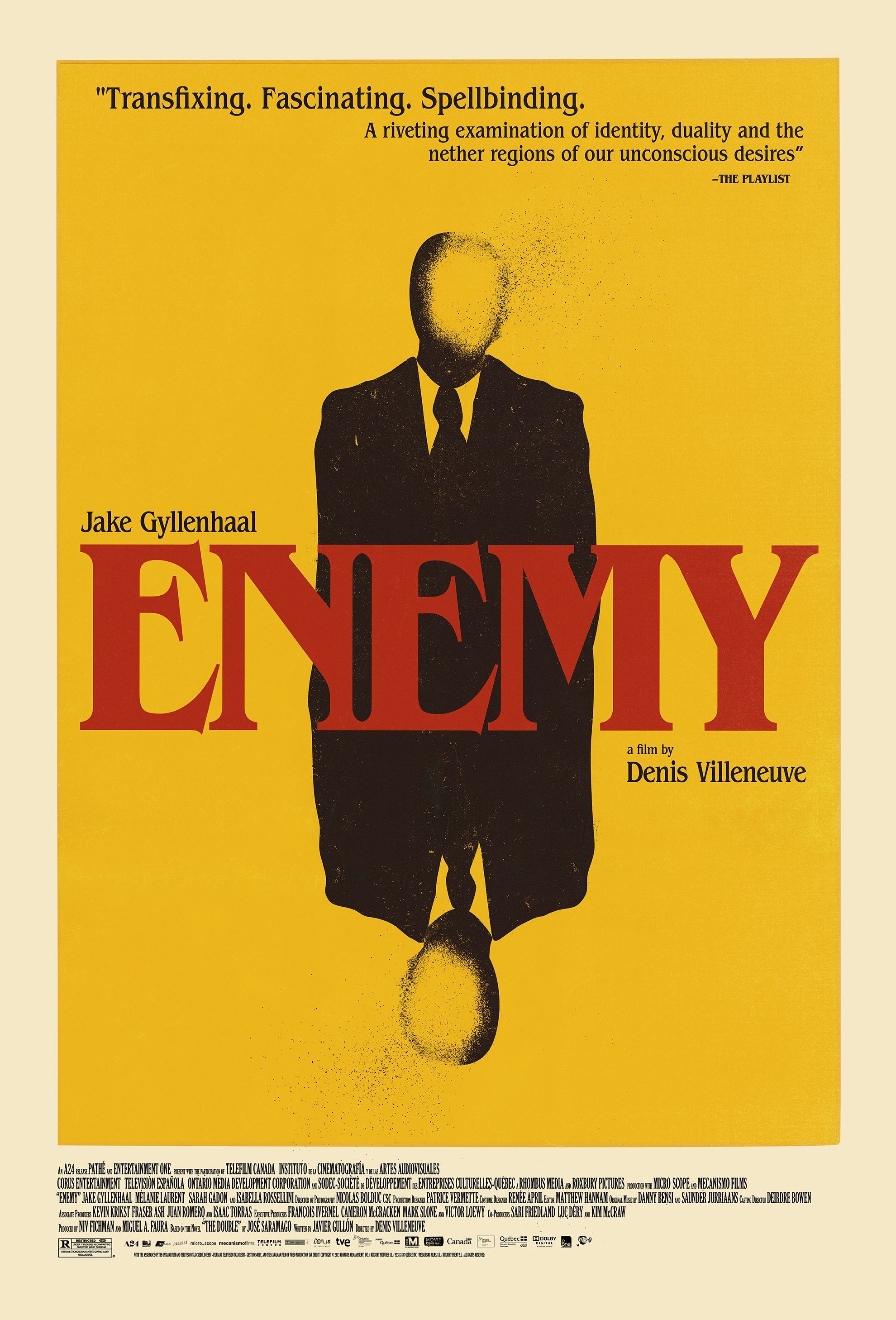Known for its abrupt, shocking, and somewhat ambiguous ending, Enemy is a layered and nuanced examination of deep and interesting themes. Directed by Denis Villeneuve, Enemy is a taut psychological drama starring Jake Gyllenhaal in a dual role. Starring as both Anthony Claire and Adam Bell, two men who appear identical but behave very differently, Gyllenhaal delivers two excellent performances as two characters discover one another and their uncanny resemblance. Each character is different from the other in personality, so it's really a matter of closely watching Gyllenhaal's performance in order to puzzle out exactly what's happening, making Enemy a particularly rewarding watch when examined more closely.
Villeneuve's acclaimed direction leaves a number of open questions at the time of Enemy's ending which mean some viewers finisht the movie still searching for an explanation. Though many aspects of the film are open to interpretation, there are several small clues that point toward more definitive answers. It all builds to Enemy's final shot might be distinctly unexpected and bizarre, but there are actually plenty of subtle aspects of the film that can be unpacked to make its baffling ending make sense. Those viewers who felt left in the dark by the last scene can find some ways to explain Enemy's ending by examining the movie more closely.

Most Underrated Movies Of The Decade
The 2010s saw a slew of great movies release on the big screen, but there were more than a few underrated movies that flew under the radar.What Happens In Enemy's Ending
Despite Gyllenhaal's performance ticks that subtly differentiate the characters, these two men feel they can successfully pass as each other without being noticed. After Anthony decides to exploit his doppelganger in order to achieve his own gratification, Adam finds himself stepping into Anthony's life. The two men are unable to act as the other, and the respective women they're attempting to fool see through their acts. Mary notices the mark on Anthony's finger from his wedding ring, and Helen understands that the man treating her with kindness and respect isn't her husband, but is instead his doppelganger.
As one of the two roles sees Jake Gyllenhaal act as a villain, it's not surprising that Mary and Anthony's argument about his identity ends in a car crash that presumably kills them both. It's more surprising to see that Helen accepts the idea of Adam replacing her husband, but his last-minute choice to attend the same-sex club that Anthony frequents is another shocking twist. After seeing the same photograph that he himself possesses in Anthony's home, his identity is called into question, but Enemy's most shocking moment comes at its very end. Checking on Helen after telling her he won't be home that evening, he sees she has transformed into a giant spider. It's an abrupt and unexpected creative choice, but it actually speaks to the film's deeper themes and ideas.
Were Anthony And Adam Different People?
The dual role of Adam and Anthony undoubtedly ranks among Jake Gyllenhaal's best, not least because of the subtle differences between them. In fact, the distinctions between the two are so subtle that there is a strong argument for them being the same person all along. This idea is backed up by the fact that Anthony owns a picture of himself and Helen, while Adam owns a version ripped in half, showing only himself. This implies that Adam is simply a more reserved and controlled part of Anthony's psyche that's trying to move past his more destructive and unpleasant behaviors.
However, there's also a strong argument for the two being separate characters. Enemy explores the ideas of patterns and cycles of behavior, and Adam's fascination with Anthony leading him to fall into the same cycle of selfishness appears to prove that the two men are independent of one another. Whether or not Enemy's main characters are the same person — leading to a Fight Club-style fake person twist — isn't explicitly stated by the film, but with regard to the film's broader intentions, it doesn't actually matter at all.
Why Helen Becomes A Spider – What It Means
The key to understanding Helen's transformation into a spider in Enemy actually lies within the film's opening scene. Anthony is shown attending a private sex club, where he watches a scantily-clad woman crushing a large spider. The idea that the spider is an unwitting pawn in Anthony's selfish gratification is important, as he is also shown to treat his wife with similar disinterest and disregard throughout the film.
It's immediately after Adam's choice to attend the same club that Helen's transformation occurs. This indicates that Adam's choice is responsible for the transformation, which acts as a visual representation of his own attitude toward her. Though it's a bold choice from director Denis Villeneuve, it communicates the point in a very literal way: in choosing to pursue his own curiosity, Adam disregards Helen just as Anthony did. In showing that she is little more than an object to him, something to be used and discarded, she transforms into just that, visually signifying that Enemy's events have come full circle. The spider is also relevant to the idea of patterns forming naturally out of chaos, something also evidenced by the web pattern used to obscure Anthony's face after the car crash.
Enemy Is About The Patterns Created By Human Nature
Beyond using Jake Gyllenhaal's character's spider fascination to represent patterns created by nature and the subconscious, Enemy thoroughly explores the idea of human nature and how it can dictate an individual's choices. Though Adam starts the film as a more quiet and reserved character, by exploring his own curiosity about Anthony, he unwittingly puts himself on the same path. Anthony is also shown to be helpless to control his less pleasant impulses, treating those around him without any real respect or consideration, and Adam slowly transitions into similar behavior in the film's final scene.
The idea that history can repeat itself is explicitly mentioned earlier in the film, as Adam lectures his class on exactly that topic. That he himself is seemingly an expert in patterns formed throughout history foreshadows the film's ending in a brilliantly subtle way that makes Enemy one of the most understated of Denis Villeneuve's movies. That Adam begins to exhibit the same behaviors as Anthony is proof of this cycle, and Anthony's fate hints that Adam is likely to meet the same unpleasant end if he cannot break free of the pattern.
How Jake Gyllenhaal Explains The Enemy Movie's Meaning
Given the demanding task of his dual performance, it is not surprising that Gyllenhaal was very invested in this movie and has his own thoughts about explaining Enemy's ending. In an interview for the movie (via Independent) Gyllenhaal explained that “This movie hopefully feels like you’re dreaming,” and offered that “It’s an exploration of the unconscious." The actor also spoke about his interest in playing complicated characters which are seen in Gyllenhaal's best movies, including Enemy. The dreamlike quality of the movie is evident, and it suggests that it is the look at a man's guilty conscience in how he treats his wife.
What Enemy's Ending Really Means
Enemy's ending is unforgettable, mostly because Helen's transformation into a giant spider is so unexpected that it demands careful consideration. However, one of the main things that the ending establishes is that it doesn't actually matter if Anthony and Adam were the same person all along and that what's more important is that Adam examines his own behavior before the cycle begins again. Much like Fight Club's ending, Enemy ends with what was once two characters suddenly becoming one, but it's far less explicit as to what exactly that means.
Ultimately, Enemy's examination of patterns of human behavior speaks for itself. Adam finds himself stepping into Anthony's life out of innocent curiosity, but it takes a more sinister turn his curiosity renders him helpless to escape. This idea of unconscious patterns and cycles and how harmful they can be is central, and Enemy's ending hints that Adam isn't able to escape from his own. It's thought-provoking, somewhat bleak, and incredibly shocking, but that's exactly what makes Enemy such a rewarding experience.


